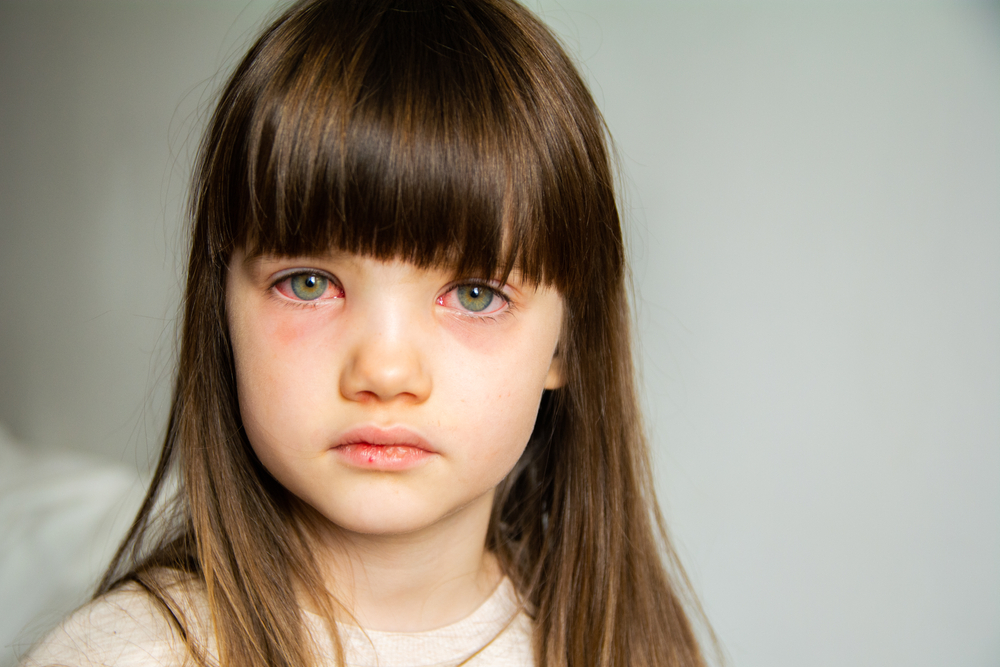
Conjunctivitis, also known as pink eye, is a common eye condition that affects millions of people each year. While conjunctivitis can be uncomfortable and irritating, there are several quick and easy tips you can follow to manage the symptoms at home.
What is Conjunctivitis?
Conjunctivitis is an inflammation of the conjunctiva, which can be caused by allergies, viruses, or bacteria.
- Allergic Conjunctivitis: Allergic conjunctivitis is triggered by exposure to allergens such as pollen, pet dander, or certain medications. Symptoms of allergic conjunctivitis include redness, itching, tearing, and a burning sensation in the eyes. You may also experience swollen eyelids, sensitivity to light, and blurred vision.
- Viral Conjunctivitis: Viral conjunctivitis is often associated with the common cold or other viral infections. It can cause redness, watery discharge, and itching in the eyes. You may also experience swollen lymph nodes, a sore throat, or cold-like symptoms.
- Bacterial Conjunctivitis: Bacterial conjunctivitis is caused by bacteria and can result in a yellow or green discharge from the eye, along with redness, itching, and swelling. Crusting of the eyelids, particularly in the morning, is also common.
- Irritant Conjunctivitis: Irritant conjunctivitis can be caused by exposure to smoke, chemicals, or foreign objects. Symptoms may include redness, tearing, a gritty or sandy feeling in the eyes, and blurred vision.
Quick Tips for Managing Pink Eye at Home
There are several quick and easy tips you can follow to manage the symptoms at home. Here are some practical suggestions:
- Practice good hygiene: Wash your hands frequently with soap and water, especially before and after touching your eyes or applying any eye drops or ointments. Avoid rubbing or touching your eyes as it can worsen the irritation and spread the infection.
- Apply cold compresses: Placing a clean, cool compress over your closed eyes can help reduce inflammation and soothe the discomfort. Use a clean cloth soaked in cold water or a refrigerated eye mask for about 10-15 minutes, several times a day.
- Use artificial tears: Lubricating eye drops or artificial tears can provide relief from dryness, itching, and grittiness associated with conjunctivitis. Choose preservative-free drops and follow the instructions on the packaging for proper usage.
- Avoid wearing contact lenses: If you wear contact lenses, it is best to switch to glasses until your conjunctivitis has resolved. Contact lenses can exacerbate the irritation and prolong the healing process. Make sure to clean and disinfect your lenses properly before using them again.
How to Prevent the Spread of Conjunctivitis
Preventing the spread of conjunctivitis is crucial to protect yourself and others from infection. Here are some important steps you can take:
- Avoid sharing personal items: Do not share towels, washcloths, pillowcases, or any personal items that come into contact with your eyes. This includes makeup brushes, eye drops, and contact lenses.
- Clean and disinfect: Clean and disinfect any objects or surfaces that come into contact with your eyes, such as eyeglasses, makeup brushes, or pillowcases. Use a mild detergent and warm water or follow the manufacturer's instructions for proper cleaning.
- Cover your mouth and nose: When coughing or sneezing, cover your mouth and nose with a tissue or the inside of your elbow to prevent the spread of respiratory droplets that may contain the virus or bacteria causing conjunctivitis.
- Stay home: If you have viral or bacterial conjunctivitis, it is best to stay home from work, school, or public places until your symptoms improve and you are no longer contagious. Follow your healthcare provider's advice regarding when it is safe to resume normal activities.
Visit Bright Eyes Vision Today
While most cases of conjunctivitis can be managed at home, it is important to seek medical attention from an optometrist. An optometrist will be able to evaluate your condition, determine the cause of conjunctivitis, and recommend treatment options. They may prescribe antibiotic eye drops or ointments, antihistamine eye drops for allergic conjunctivitis, or provide other interventions based on your specific needs.
For further guidance on how to manage pink eye, visit Bright Eyes Vision at our office in Plymouth, Indiana, or call (574) 936-2272 to book an appointment today.









